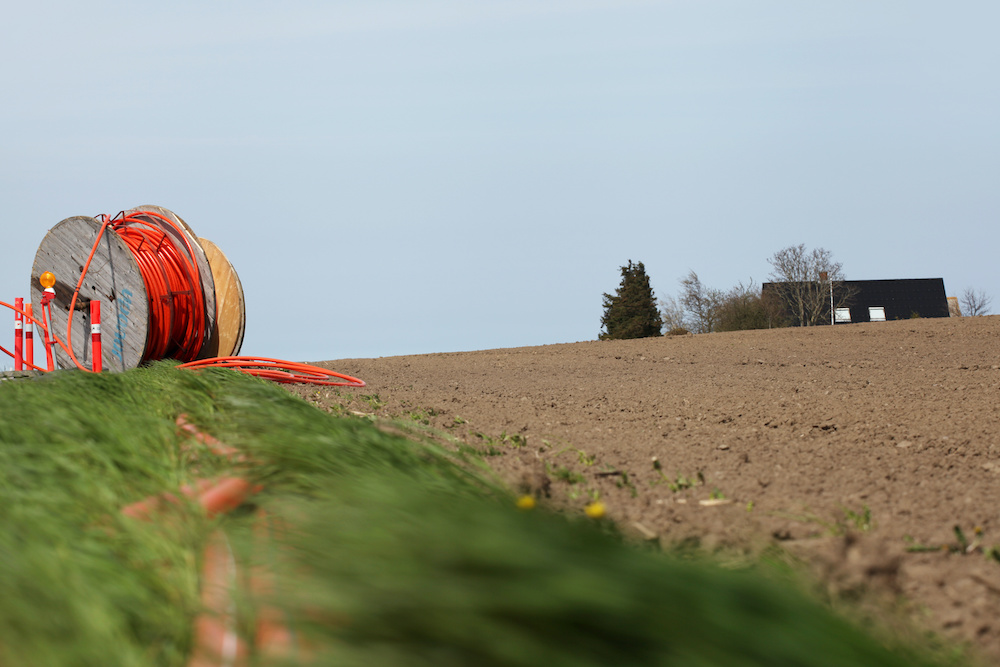
- Details
- By Darren Thompson
WASHINGTON— The U.S. Department of Commerce’s National Telecommunications and Information Administration (NTIA) this week announced it had awarded $224 million to tribal governments as part of its Tribal Broadband Connectivity Program.
The awards are the latest round of NTIA funding, which is directed to tribal governments for broadband on tribal lands, as well as telehealth, distance learning, affordable high-speed Internet access and digital inclusion. In total, the NTIA program has awarded $1.6 billion to 114 tribal communities.
Want more Native News? Get the free daily newsletter today.
“President Biden is absolutely committed to making sure that every single American has high-speed internet at their home or at their school,” Secretary of Commerce Gina Raimondo said in an interview this week with Native News Online. “That includes people who live in rural America, on Tribal lands, and low-income families.”
The latest round includes 18 new grants to tribal governments in 11 states: Alaska, Arizona, California, Iowa, Minnesota, Montana, New Mexico, Nevada, New York, South Dakota and Virginia.
The tribes receiving funding are Central Council Tlingit & Haida Indian Tribes of Alaska, Kenaitze Indian Tribe (IRA), Metlakatla Power and Light, NANA Regional Corporation, Inc., Cocopah Indian Tribe, Havasupai Tribe of the Havasupai Reservation, Big Sandy Rancheria Band of Western Mono Indians, Big Valley Band of Pomo Indians, Susanville Indian Rancheria, Sac and Fox Tribe of the Mississippi in Iowa, Lower Sioux Indian Community in Minnesota, , Northern Cheyenne Tribe, Pueblo of Zia, Ely Shoshone Tribe, Haudenosaunee, Environmental Task Force, Shinnecock Indian Nation, Lower Brule Sioux Tribe, and the Pamunkey Indian Tribe.
The Tribal Broadband Connectivity Program is a nearly $3 billion grant program and part of the Biden-Harris Administration’s Internet for All Initiative. The Bipartisan Infrastructure Law includes $65 billion to provide affordable, reliable, high-speed Internet across the country.
“We have a mission to connect everybody,” Secretary Raimondo said. “This is about connecting every single American no matter where they live, the color of their skin, or how much money they make.”
NTIA is continuing to review the more than 280 applications received during the application window, which closed on Sept. 1, 2021. The Tribal Broadband Connectivity Program will announce additional awards on a rolling basis as they work through the review process.
More Stories Like This
Native News Weekly (August 25, 2024): D.C. BriefsNative News Weekly (March 1, 2026): D.C. Briefs
Scope Narrowed, Report Withheld: Questions Mount Over Michigan Boarding School Study
Zuni Youth Enrichment Project Announces Family Engagement Night and Spring Break Youth Programming
Next on Native Bidaské: Leonard Peltier Reflects on His First Year After Prison
Help us defend tribal sovereignty.
At Native News Online, our mission is rooted in telling the stories that strengthen sovereignty and uplift Indigenous voices — not just at year’s end, but every single day.
Because of your generosity last year, we were able to keep our reporters on the ground in tribal communities, at national gatherings and in the halls of Congress — covering the issues that matter most to Indian Country: sovereignty, culture, education, health and economic opportunity.
That support sustained us through a tough year in 2025. Now, as we look to the year ahead, we need your help right now to ensure warrior journalism remains strong — reporting that defends tribal sovereignty, amplifies Native truth, and holds power accountable.
 The stakes couldn't be higher. Your support keeps Native voices heard, Native stories told and Native sovereignty defended.
The stakes couldn't be higher. Your support keeps Native voices heard, Native stories told and Native sovereignty defended.
Stand with Warrior Journalism today.
Levi Rickert (Potawatomi), Editor & Publisher
